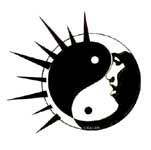
The debate about the origin of the Universe presupposes that there was an origin. Instead of a beginning, the Universe may be experiencing an endless number of cycles. Ancient Chinese believed that all events formed a periodic pattern driven by two basic forces, Yin and Yang.

Judeo-Christian tradition was unique in its belief that God created the Universe at some specfic moment in the past, and that events form an unfolding unidirectional sequence. Key to this philosophy is that the Creator is entirely separate from and independent of His creation. God brings order to a primordal chaos.
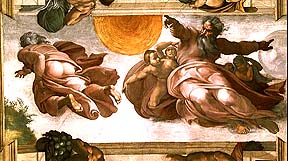
A Creation event implies that everything came from nothing (creation ex nihilo) since if there were something before Creation, than an earlier Creation is needed to explain that something. God existed before Creation and, by definition, is not limited to work with pre-existing matter or pre-existing physical laws either. In fact, the most obvious distinction between the Creator and the created Universe is that the Creator is eternal and the created Universe had a beginning.
Hubble's law :
In the 1930's, Edwin Hubble obtained a series of observations that indicated our Universe began with a Creation event. He discoveried that all galaxies have a positive redshift. In other words, all galaxies were receding from the Milky Way. By the Copernican principle (we are not at a special place in the Universe), we deduce that all galaxies are receding from each other, or we live in a dynamic, expanding Universe.
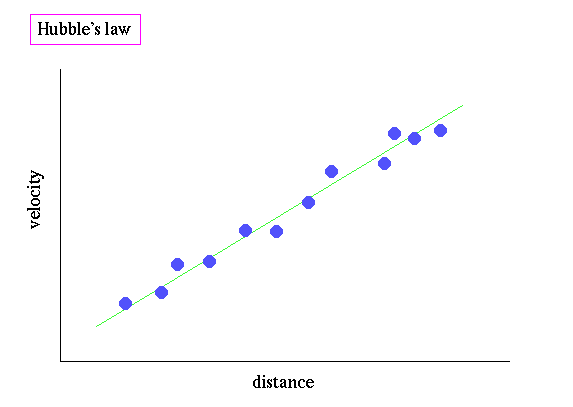
The expansion of the Universe is described by a very simple equation called Hubble's law; the velocity of the recession of a galaxy is equal to a constant times its distance (v=Hd). Where the constant is called Hubble's constant and relates distance to velocity in units of light-years.
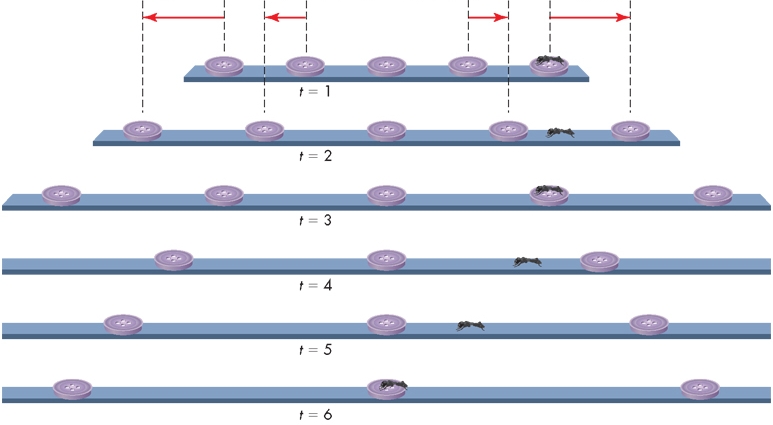
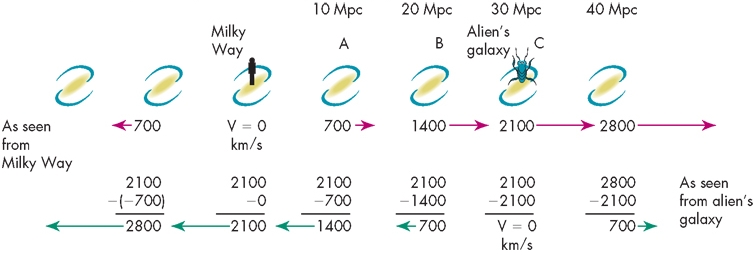
Hot Big Bang :
The discovery of an expanding Universe implies the obvious, that the Universe must have had an initial starting point, an alpha point or Creation. In other words, there existed a point in the past when the radius of the Universe was zero. Since all the matter in the Universe must have been condensed in a small region, along with all its energy, this moment of Creation is referred to as the Big Bang.
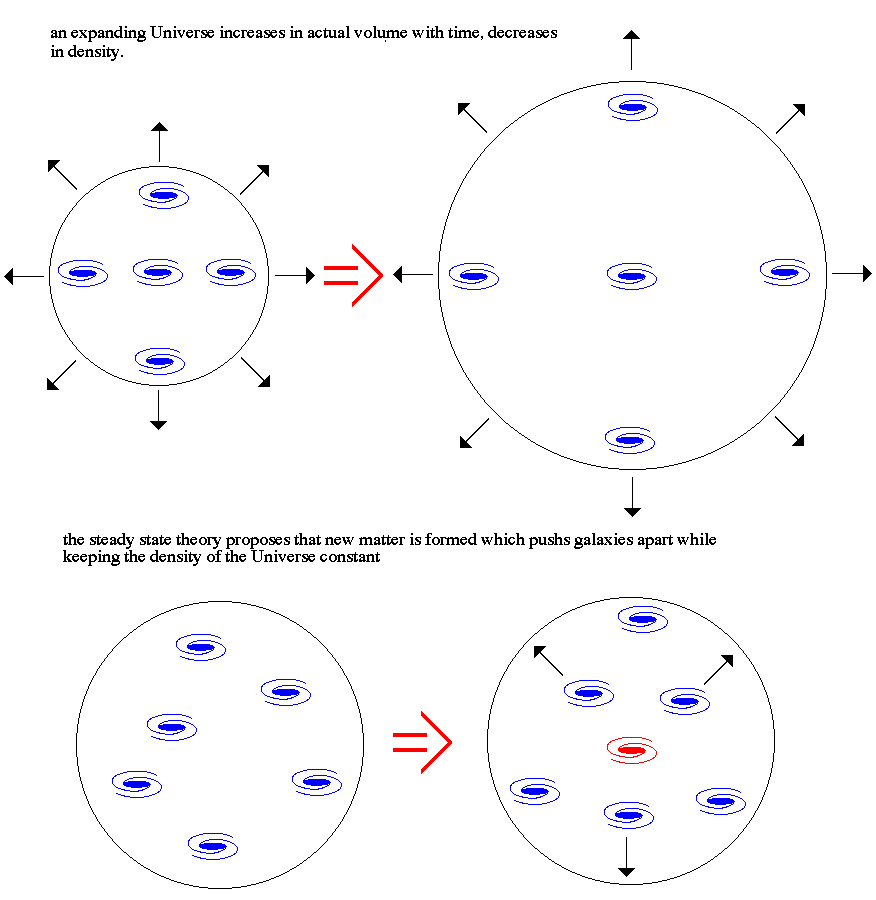
A common question that is asked when considering a Creation point in time is ``What is before the Big Bang?''. This type is question is meaningless or without context since time was created with the Big Bang. It is similar to asking ``What is north of the North Pole?''. The question itself can not be phrased in a meaningful way.
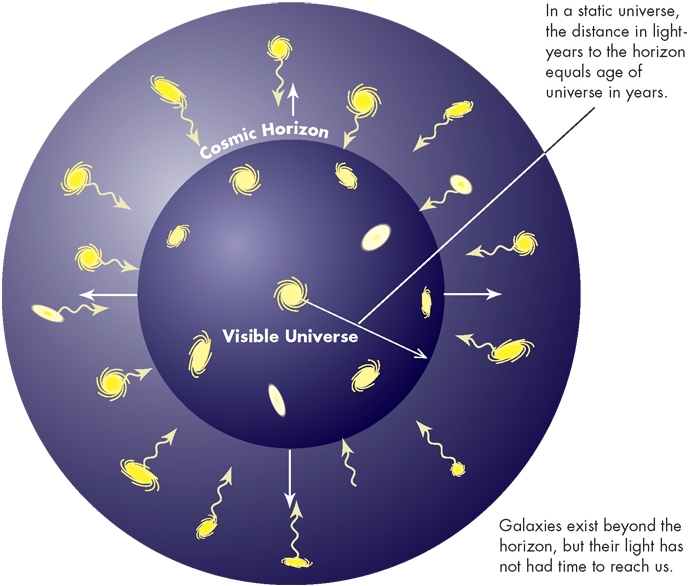
The Big Bang theory has been supported by numerous observations and, regardless of the details in our final theories of the Universe, remains the core element to our understanding of the past. Note that an alpha point automatically implies two things: 1) the Universe has a finite age (about 13 billion years) and 2) the Universe has a finite size (its expanding at a finite speed in a finite time).